
Do you have what you need to make your garden grow?


Garden Center
Store Hours
Mon-Sat:
6:00am - 10:00pm
Sun:
8:00am - 8:00pm
Curbside:
09:00am - 6:00pm
Location
Popular at Your Garden Center
Spring Garden Supplies
Explore Popular Spring Plants
Garden Project Calculators
;Resize=(703,395.44))
Grass Seed Calculator
When you're ready to seed your lawn, our calculator helps you estimate the amount of grass seed you'll need to get the job done.
;Resize=(703,395.44))
Mulch Calculator
Enter your preferred material, the square footage and mulch depth of the coverage space for accurate results.
;Resize=(703,395.44))
Fencing Calculator
We'll calculate the amount of fencing you should purchase based on your property needs.
Shop Outdoor and Garden Brands
Frequently Asked Questions About Gardening
Which planting zone am I in?
Check the USDA growing zone map, as planting zones have changed slightly over the years. Zones with higher numbers can plant earlier in the year. Increase your odds of successful gardening by choosing plants that are meant for your zone.
What does direct sow mean?
If the ground isn't frozen solid and the soil isn't cold, consider planting your fruit, flower, or veggie seeds directly into your garden. This is called the "direct sow" method. The time to plant will be after the threat of frost is gone for the season, as seedlings and sprouts can't weather those conditions. You can also start your seeds indoors if you'd like. Consult your seed packet for when and how to sow seeds.
Do you carry organic plants and seeds?
Yes, we've got a variety of organic options, including organic fruit seeds and veggie seeds, as well as organic flower and herb seeds that are subject to availability. We also carry the organic fertilizer to feed your plants and the organic soil to plant them in.
Should I harden off my seedlings before planting them outside?
Yes, if you raised plants indoors from seeds in your own plant nursery, harden them first before you transplant them. Hardening is the process of getting them used to the great outdoors and sun, rain, and temperature swings. It slows their growth until they're strong and ready to take off during a spring warm front. Hardening also makes your plants more resilient to a sudden cold snap. Read your seed packets or speak to a garden center associate for more info on caring for your seedlings.
Can I strengthen my seedlings before planting them outdoors?
Get your sprouts used to storms and breezy spring days with a fan and keep fungus from growing in damp conditions. Set up an oscillating fan on low to mimic the wind. Just the gentlest breeze for several hours a day will do the trick — no need to prep them for a hurricane. They'll gain strength even though you shouldn't see them moving. If you don't set up a fan, your seedlings may be more sensitive to strong winds. Try to plant between storms.
What are seed tapes?
If you're dealing with extremely tiny seeds or want more guidance in planting, consider seed tapes. They're biodegradable pieces of paper with tiny seeds affixed at regular intervals. Just bury the tape and water as directed. If all goes well, you'll have perfectly spaced sprouts pop up soon.
Garden Project Ideas
The Home Depot Garden Center at W Flint
Celebrate Springtime Gardening
On beautiful spring days, tidy the yard before everything blooms in earnest. Many people feel inspired to refresh their outdoor space for entertaining as well. Don't forget to sweep the gazebo and clean out the shed in preparation for spring, too. No matter which plants you need and what outdoor projects you choose to tackle, you'll find that The Home Depot Garden Center in W Flint is the local plant nursery to help you enjoy your spring activities to the fullest.
Plant Hardiness Zones Explained
The first thing you should know when planting spring flowers, veggies, and other seeds is your planting zone. Every location in the U.S. and its territories is sorted into blocks by climate. Find your zone on the USDA zone map and learn when to plant seeds.
For example, you could transplant bell peppers outdoors in mid-March in Zone 10, but not until the end of May in Zone 4. The plants that'll thrive in your area are in your zone — plus all the zones numbered less than that. In other words, a Zone 6 garden can support plants listed as Zones 1–6. You can plant seeds indoors roughly a month before you can plant them outside, known as direct sow. Be sure to read your seed packet for details. If you start seeds a little later than recommended, it's not ideal, but it should even out as time passes.
Gardening in Your Growing Zone
The Midwest is mostly Zones 6 and 7 throughout Indiana, Michigan, and Kentucky. You’ll find pockets of Zone 5 and stretches of Zone 4 in the Upper Peninsula. In Zones 5 and 6, the outdoor growing season doesn’t begin here until mid-March or even April, although you can plant some veggie seeds halfway through February. Warmer Zone 7 can start planting earlier, and Zone 4 much later on. Tomatoes, peppers, cucumbers, squash, and other classic garden crops will do well in this region, and most of them can get an early jump on growing indoors before spring really moves in.
Also, check out cruciferous veggies and certain herbs if you're ready to get planting. This includes kale, broccoli, and cabbage. Greens like spinach, artichokes, and fragrant herbs, including oregano, basil, and parsley, also don't mind an early start. The main concern is waiting until the frost has passed for the season, so planting seeds outdoors as direct sow is later here compared to farther south.
Plant Seeds Outside With Direct Sow
Planting seeds with the direct sow method, right into the soil, is another option. It doesn't give you as much organized planning in terms of reliability and spacing compared to indoor starts. However, if you like to go with the flow, follow the instructions on your seed packet and try it out.
Prepare to deal with whatever hand nature deals you: Be ready for none of your seeds to sprout, all of them to come up, and anything in between. Your seedlings will need to survive rain, wind, and cold snaps, as well as critters and bugs that want a crunchy green snack. But if you're lucky, you'll get strong sprouts that are ready to grow all spring.
Start Seeds Indoors
If you're eager to get growing or would like more control in the care and feeding of seedlings, start your seeds indoors in your own plant nursery. In general, you can plant seeds indoors about a month before you can do it outside. Like direct sow, you push the seeds into the soil as directed on the seed packet, but that's where the similarities end.
You're responsible for giving them quality substitutes for rain and sun. Keep your seeds cozy with warming mats and grow lights, water them carefully with a spray bottle or watering can, then thin them as they germinate in groups of three. Give them a boost with a gently blowing fan as they lengthen into sprouts if you'd like. Harden them off to get them used to outdoor conditions, then transplant them into your garden when they're big enough.
Transplant Young Plants Into Their New Homes
Carefully take your seedling out of the container. A good way to do this is to turn it upside-down or sideways and gently squeeze the plastic to break the seal. If your transplant grew in the garden, leave plenty of room around the stem and dig deeper than you think with your garden trowel. You don't want to damage the roots. Put the plant in the new hole and ensure it's even with the surrounding soil.
Protect Your Garden With Mulch
Finish your garden bed with compost and mulch. Compost enriches the soil so your garden can grow even better. It may help foster larger and stronger plants that bear more flowers and fruit. Mulch keeps your soil from drying out and controls weeds. Mulch and compost can be DIY creations, but you can also purchase them in-store. The next time you're looking for "mulch near me," stop by the Garden Center to get the right amount.
Greet the Spring
Don't miss a minute of growing season. Plan your garden and landscaping, prepare to fertilize your lawn, and browse The Home Depot nursery to find inspiration on what to plant when the weather warms. For those without lawns, consider adding an outdoor rug, artificial grass, or a pellet grill to your patio or balcony. Shop for the soil, fertilizer, and seeds you need in the aisles of your W Flint Garden Center, online, or on our mobile app. Let's get growing together.
Nearby Stores
Find Another Store
5300 W Pierson Rd
Flushing, MI 48433
4.17 mi
Mon-Sat: 6:00am - 10:00pm
Sun: 8:00am - 8:00pm
1222 West Hill Rd
Flint, MI 48507
5.23 mi
Mon-Sat: 6:00am - 10:00pm
Sun: 8:00am - 8:00pm
4245 E Court St
Burton, MI 48509
7.20 mi
Mon-Sat: 6:00am - 10:00pm
Sun: 8:00am - 8:00pm
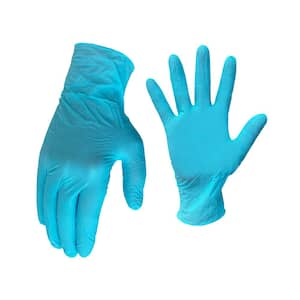
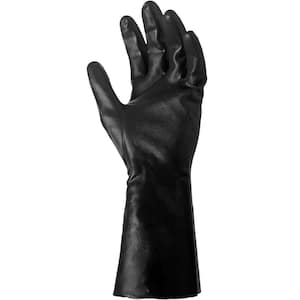
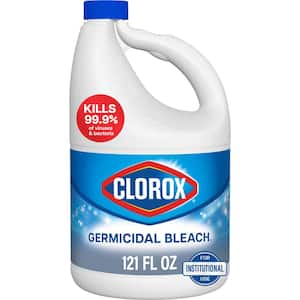

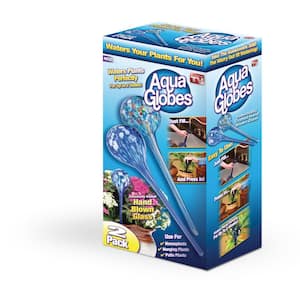
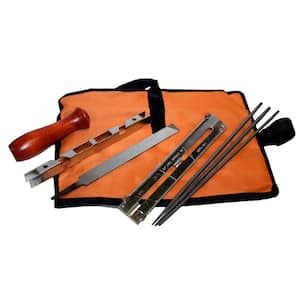
)
)
;Resize=(300,300))
)
)
/2023_P2_Rain_Barrels_Product%20Image%20(square).jpg?im=Resize=(300,300))
)
;Resize=(300,300))
)
;Resize=(300,300))
;Resize=(300,300))
;Resize=(300,300))
)
;Resize=(300,300))
/12_SOIL_B_0420_Social%20media%20(square).jpg?im=Resize=(300,300))
;Resize=(300,300))
;Resize=(300,300))
)
)
)
;Resize=(300,300))
;Resize=(300,300))
;Resize=(300,300))
;Resize=(300,300))
;Resize=(300,300))
)
;Resize=(300,300))
/18Patio_Camden_Seagrass_5pcSeating_Planters_302468736_DTL3_L_Social%20media%20(square).jpg?im=Resize=(300,300))
;Resize=(300,300))
;Resize=(300,300))
;Resize=(300,300))
;Resize=(300,300))
;Resize=(300,300))
)
)
)
.jpeg?im=Crop,rect=(363.69230769230774,1.2307692307692308,958.7692307692308,958.7692307692308);Resize=(300,300))
;Resize=(300,300))
;Resize=(300,300))
;Resize=(300,300))
)
)
;Resize=(300,300))
;Resize=(300,300))
;Resize=(300,300))
)
;Resize=(300,300))
)
)
)
)
;Resize=(300,300))
;Resize=(300,300))
)
;Resize=(300,300))
)
)
/Capello_Spring_Mum_10in_Social%20media%20(square).jpg?im=Resize=(300,300))
;Resize=(300,300))
)
)
;Resize=(300,300))
;Resize=(300,300))
)
)
)
)
)
;Resize=(300,300))
;Resize=(300,300))
;Resize=(300,300))











































